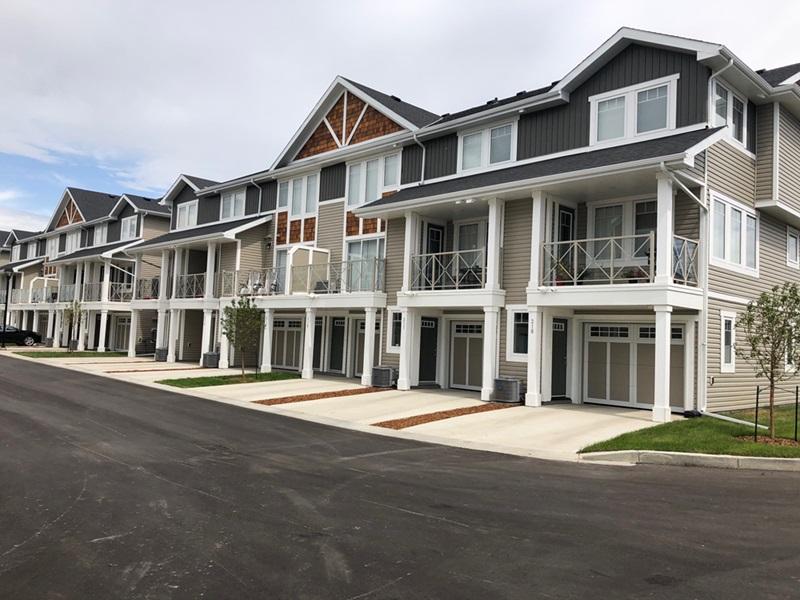Who would have thought that we boomers would prove to be such a persistently tiresome group?
For those of you who enjoy the armchair sport of market watching in residential real estate, it’s been an interesting couple of quarters.
Take Toronto. After years of rampant inflation, its downtown condo craze has been dashed with a dose of temperance. According to the latest data, sale volumes near the harbourfront continue to fall, while sales activity and asking prices out in the more spacious ‘burbs continue to increase.
“Downtown condo sales fall in Toronto as people flee to suburbs,” read one headline. “Canadian real estate landscape ‘shaken to its core,’ ” read another.
As I wrote last time, the trend of people fleeing the urban core for the ‘burbs or even the rural wilds was a topic of conversation at October’s Ottawa Real Estate Forum. The question is how big of a trend is it really and how long might it be expected to last vis-à-vis the pandemic.
Ottawa too is seeing a swing in homebuying activity that appears to be favouring larger housing options with more space for home offices and home gyms.
Media stories in recent weeks have also cited a sudden surge in interest for a rural lifestyle in outlying areas like Renfrew County, provided there is high-speed Internet and a quick highway connection to the city.
Some market watchers have concluded that we boomers, at least in part, are driving all this activity.
“Silver tsunami” strikes again?
That “silver tsunami” strikes again, according to one local realtor. Almost a third of Ottawa’s population fits into that boomer age range of 56 and 74 – one of the highest per-capita rates in the country.
As this crowd empties the nests and looks to change digs with retirement, they are helping to drive the recent surge in housing demand and pricing outside Ottawa’s Greenbelt.
Millennials – offspring of the smaller bust generation (boom, bust and echo), on the other hand, while widely billed as the next great economic driver after the boomers, have yet to become a major home-buying force.
But as they do in the coming years, the expectation is that, some of the time, they will be competing with the boomers for the same housing options. This will put further pressure on supply and pricing.
We will see if these predictions hold true and if they will also apply to other cities across Canada with comparable demographics.
In the meantime, it appears boomers continue to be in the driver seat. Which of course is nothing new. We stuffed public schools to overflowing in the ’50s and ’60s, forcing huge investments in education.
We created the flood of humanity looking for jobs in the ’70s and ’80s. We then decided to have smaller families than our parents, which created a new dynamic with the Gen Xers. And now, decades later, we continue to create new norms and influence economic activity.
Statistics Canada has a great graphic that illustrates the demographic bulge we represent.
Country living just a phase?
This takes me right back to the very first column that I wrote for RENX . . . in July 2012!
Back then, I was citing a Conference Board of Canada report that asserted 80 per cent of new housing demand in Canada would come from seniors (read “boomers”) by 2030. (The link to this report is long lost.)
The board also forecast ,at the time, the demand will be for easier-to-maintain multiple dwelling units – this residential property type will come to account for 68 per cent of all housing, compared to the 2012 figure of about 47 per cent.
At that time, the expectation was the migratory trends of an aging population would drive increased densification in city centres across Canada regardless of whether local governments were actively promoting densification.
The current situation would appear to run contrary to this forecast. But this whole idea of moving to the country with retirement is nothing new.
When I appraised houses in the ’80s, I referred to it as “seniors being in their country phase.” The catch, however, is that while this lifestyle may be appealing when you’re 60 to 75, it is less so when you’re 80 to 90.
The labour of maintaining such a property quickly loses its lustre.
Is any swing in favour of a country lifestyle therefore likely to reverse itself in a decade or so?
Seniors’ housing preferences need more study
The current market volatility leaves me interested to see a fuller report on housing preferences for people over 65. Because of course different people want to do different things as they head toward retirement.
Some people never move out of their family home. Some do embrace a country life. Others do want a smaller property with more amenities close by and are willing to pay a premium for a centrally located condo to get it.
And then there are those who never believe they will get old, plan poorly, spend too much along the way and end up having to cash out and move into something smaller for affordability.
Regardless of what’s driving activity, the result is rapid increases in house prices across much of Canada with the pandemic. At this point, we can only assume it’s a confluence of many factors, but no single big one.
These include, but are not limited to, short-term viral boredom, extremely low interest rates, and the boomers and echo generations competing in the same markets for the same product at the same time.
To discuss this or any valuation topic in the context of your property, please contact me at jclark@regionalgroup.com. I am always interested in your feedback and suggestions for future articles.







